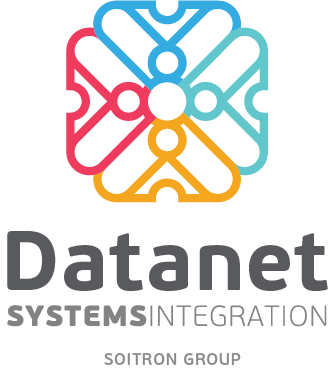
“This conversation may be monitored. Continuing this call implies your acceptance of the recording.” Usually, you hear such a message, in various forms, when you contact a financial-banking institution, a telecom operator, or a utility provider by phone. But, in the GDPR requirements context, more and more organizations use this “formula” when interacting with a customer. The “verbal agreement” solution, obtained by phone, for concluding, modifying or terminating a commercial contract is faster, more economical and efficient than other methods used, which involve greater effort on both sides (the customer’s physical presence at the company’s headquarters of one of its subsidiaries, filling in a physical form or sending an electronic mail, scanning and loading a signed document, etc.) Moreover, statistics show that – despite the development of multi-channel contact systems – phone calls remain the most used method when customers are contacting a company, preferred interaction being with a human interlocutor.
GDPR limitations
One of the reasons why companies are increasingly using the “initial warning” is due to the new General Personal Data Protection (GDPR) provisions, which came into force on May 25 2018. GDPR clearly states that organizations have an obligation to obtain the consent of the persons they interact with if they are asked to transmit personal data during their conversation. The Regulation does not verbal consent, but it requires that the data controller must be able to demonstrate that the person whose data is collected has given his explicit consent. For this reason – but also because they often use phone calls to conclude “verbal contracts” – these need to be recorded. The resulting audio files must comply with the conditions of integrity and availability provided in the regulation, as well as the minimum retention times stipulated in the legislation (on average between 5 and 10 years, the maximum being for financial banking institutions).
Datanet’s Solution – Specific Developments over the ZOOM Application
All these conditions generate real challenges for many organizations faced with the need to generate, manage, store, and securely archive large volumes of audio files, on a long and very long term.
Datanet Systems is providing support for these companies to develop and integrate the ZOOM CallRec solution, rated by Gartner as one of the best in the market. The ZOOM solution is specifically designed to ensure compliance with GDPR requirements, but also with other regulations in place, such as PCI DSS, FDCPA, Sarbanes-Oxley, HIPPA, Telemarketing Sales Rules or the Securities Exchange Act. The main strengths of the CallRec application, determined by market analysts, are robustness and scalability, superior levels of availability and security it provides, and ease of use.
Datanet capitalizes all these attributes by developing personalized micro-applications over the ZOOM solution, tailored to each client-company, with a long-lasting Call / Contact Center experience and a team of high level certified professionals.
With more than 20 years of experience in this area, Datanet has made several implementations of the ZOOM solution, especially in the financial and banking environment, characterized by very strict requirements regarding data availability and security but with numerous requests of specific developments.
Here are some of the most common developments made by Datanet specialists:
- Deleting customer data – GDPR provides that any customer has the right to be “forgotten”, meaning he can request any organization with whom he has a commercial relationship to delete all the data stored referring to him. Applying this regulation to audio recordings can cause difficulties for companies that operate large volumes of audio files archived on various storage media. To simplify this operation, Datanet specialists have developed customized deployments that allow selective deletion of identified files belonging to a particular client over specific periods, automatically recording these operations in databases. (Centralized evidence is very useful in the case of control of the National Authority for Personal Data Surveillance and Protection.) The Datanet solution works efficiently both for information stored on hard drives and on bands – an economic solution for long archiving durations, but which for which file identification takes longer. The Datanet application is also useful in enforcing legal provisions regarding the life cycle of audio recordings, by selectively deleting audio files according to associated metadata. In addition, Datanet can deliver, deploy, and configure redundant storage systems – with a diverse portfolio of products – to ensure a superior level of data availability.
- Adding Contextual Data – Another demand for Datanet specialists is to integrate databases with the ZOOM solution so that additional information can be added to the resulting audio files, such as the name of the client, extracted from the database of a CRM system. Through this development, organizations can faster identify the records associated with a particular client, a necessary operation not only in the application of the client’s right to “forgotten”, but also in the case of checking the agreed contractual terms.
- Automatic checks of record validity. To avoid breaking the GDPR provisions, Datanet has made an application that automatically checks the validity of audio files (ie whether the recording was actually done and if both parties – the client and the organization’s representative – were recorded). If it detects a malfunction at this level, Datanet’s solution automatically signals the issue to the assigned responsible person. (The application can be customized up to the point it reintroduces and automatically prioritizes the unregistered call in the queue assigned to an agent in the Call / Contact Center.)
- Automated Configurations for User Groups. Datanet has created an application that constantly checks user groups defined in Active Directory, and when it identifies the introduction of a new member into special categories in which the recording solution should be used (such as Sales departments, Customer care etc.), it automatically configures the ZOOM solution so that any call initiated or received by the new member is recorded and stored appropriately.
- Creating Whistleblowing systems. Datanet has developed an application that automatically records incoming calls from “integrity whistleblowers” and taken over by the person or persons assigned to take over these calls, anonymizing all the data that can lead to caller identification. (Datanet’s application respects the specific legislation for the protection of integrity whistleblowers in Romania, namely Law 571/2004).
The advantage of multidisciplinary expertise for the implementation of GDPR requirements
CallRec easily integrates with the Call / Contact Center solutions of the leading vendors on this market niche, such as Genesys, Avaya, SIP, or Cisco. ZOOM offers native support for Cisco Unified Contact Center Enterprise (UCCE) platforms and Cisco Unified Contact Center Express (UCCX), ZOOM solutions being listed this year in the Cisco SolutionsPlus catalog. (The “ZOOM-Cisco Combination” is used globally for over 1,500 Call / Contact Centers.)
From this perspective, Datanet Systems has a double advantage – it is the main Cisco partner in Romania, with the largest team of certified specialists and has already in its portfolio numerous successful ZOOM solutions implementations, with very good knowledge of the Call / Contact Centers specifications.
Therefore, if you are interested in how to capitalize on the benefits of ZOOM and Cisco solutions, benefitting from Datanet’s technical solutions portfolio, as well as experience and expertise of Datanet specialists in personalizing implementations through specific developments, please contact us at office@datanets.ro
 Enhance container usage with Cisco...
Enhance container usage with Cisco...
